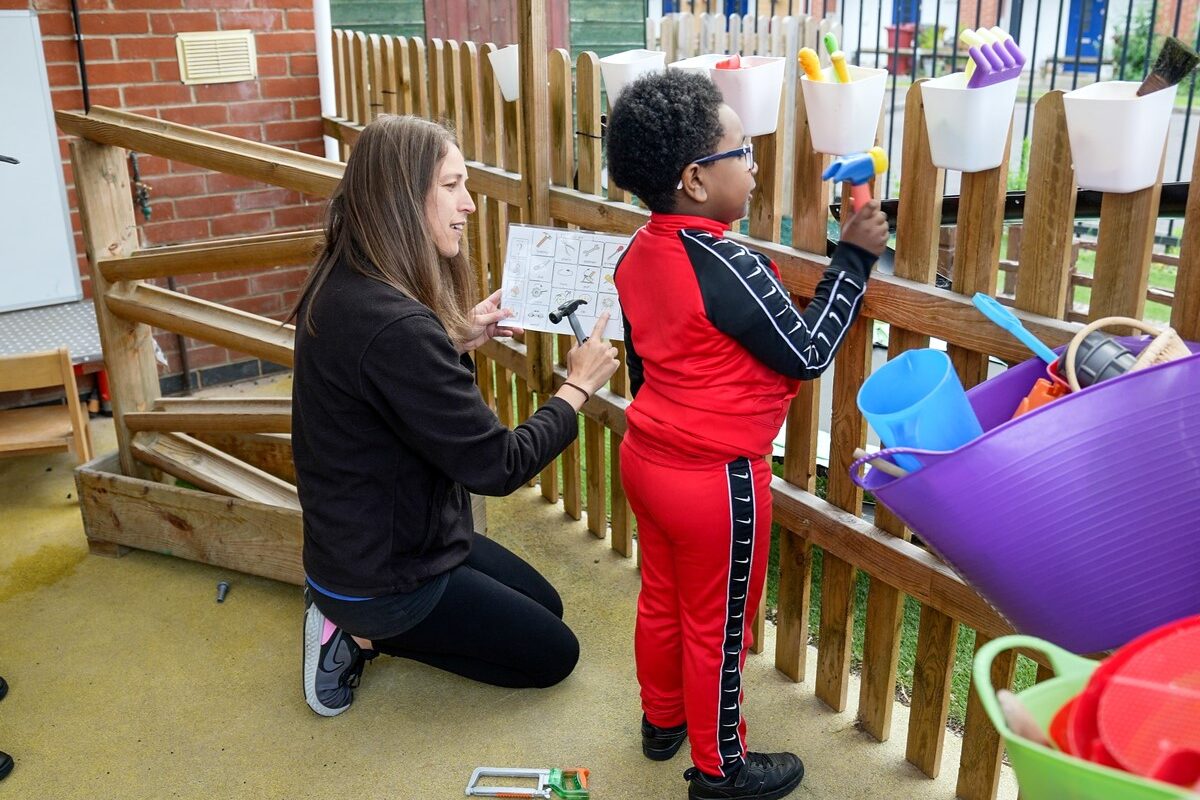Catherine McLeod – Dingley’s Promise CEO
This week, I have been reflecting on the Equity Diversity and Inclusion (EDI) journey of Dingley’s Promise over the past few years. We have recently opened a new Centre for the first time in over 20 years. During the set up of the new Centre, EDI was very much on my mind and on visiting the Centre before opening we reviewed the materials on display and found that they did not represent the diverse community of the area. This opened up a wider conversation about why it is important that children see themselves in the setting, and how we can work with every family so that they feel not just welcomed, but celebrated.
In our Centres we firstly make sure that books, toys and other resources represent a wide range of backgrounds. This means not just books specifically about diversity, but story books featuring different kinds of children and families. Next, we consider the core experiences our children have, and think about how those might differ for them. This could be in relation to food, to nursery rhymes, to stories, to familiar smells, to games and many other areas. It is about not assuming that what is normal to the practitioners is normal to the child, and understanding what is familiar and comforting to them. During a training session with our EDI advisor Liz Pemberton, an activity used incense sticks to elicit responses from practitioners. In the group I was in, one person said they smelt awful and like really bad washing powder. For me, they smelt like peace and calm because I lived in Sri Lanka for years and it reminded me of prayer time. We talked about how smells that can feel alien to the practitioner, could be the most familiar and calming to our children and families. As practitioners we have to constantly challenge the centering of what we automatically feel is normal, and explore what normal might be for our children and their families.
It’s not just about how our children and families feel though. Our staff team has become more diverse over the past few years – something that we have worked hard to achieve as part of our EDI Action Plan. A number of job applicants have commented on the diversity demonstrated on our website and in our documents, and said that was a key reason why they applied to work for us. In one of our Centres, a new volunteer was advised to consider us by the Imam at her mosque – something that became possible because we had actively approached local faith leaders. We also recently reflected on the fact that we give an annual ‘Christmas Shopping Day’ to staff and have now changed this to a ‘Festive Shopping Day’ so that team members can take the day whenever they have their main annual festivities rather than assuming that would be Christmas. Like so many moments in our EDI journey, once we verbalised the issue it seemed so obvious and right that we had to change it – and also uncomfortable that we hadn’t realised it sooner.
For us, EDI is a constant in our planning and development, and we expect to continue to do this work for as long as we are here. Although we have always thought of inclusion as something in our DNA because of the work we do to ensure children with SEND are included wherever possible, what we have realised is that we want to work strongly towards all kinds of inclusion – not just that related to disability. For that reason, we have supported Reading Pride, spoken on BBC radio with Drag Queen Story Hour, and ensured that we have books and materials representing all kinds of family structures. For that reason, we have not only taken our own journey related to race and ethnicity, but this year we will launch a short training course for early years practitioners to ensure that they have the knowledge and confidence to work inclusively with children and families from a range of diverse ethnic backgrounds. For that reason, we strive to attract men to work in our Centres so that our children can experience positive male role models in their earliest years alongside the strong women who already work for us.
EDI work is constant – it will never be ‘done’. Where we are now is not a triumph – it is a work in progress as we try to be the best place for our children, families and teams to thrive and feel celebrated. For this reason, we will continue to reflect and learn. We will make mistakes and will sometimes overlook important issues, and it is up to us to listen, reflect and learn. Only when we are comfortable that we don’t have it all sorted out, and are ready to take criticism and learn from it, are we able to build meaningful equity, diversity and inclusion.

